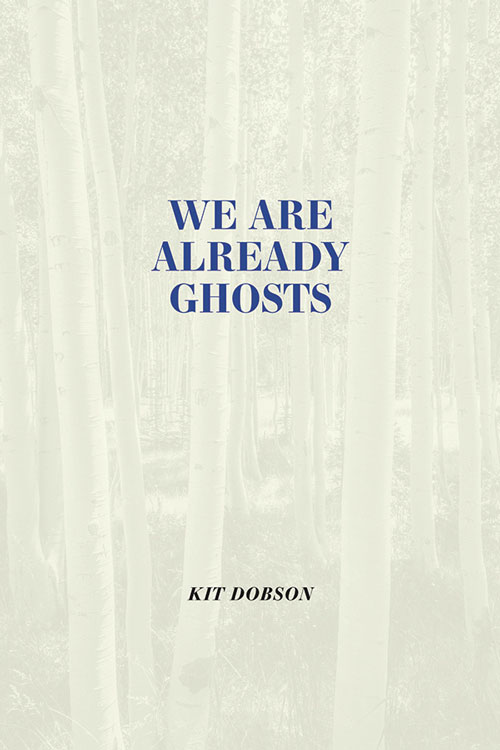Kit Dobson is a writer of many talents. Besides the literary scholarship you’d expect from a University of Calgary English professor, he’s the author of two remarkable non-fiction books, Malled (2017) and Field Notes on Listening (2022), both of which deal, in very different ways, with how we experience place, home and continuity. His first novel, We Are Already Ghosts, shares that concern, but approaches it from that oldest of human activities—storytelling.
The action of the book occurs among the members of an extended upper-middle-class family as they spend a series of summers at their cabin in central Alberta. Imagine the various divisions that naturally occur in such a group—the older generation and the younger one, the separate nuclear families that make up the larger group, men and women, blood relatives and the relatives by marriage. At this point you may be thinking of Chekhov, or perhaps of On Golden Pond. But where stage plays by their nature deal with the relationships between characters, Dobson is just as interested in the interior lives of his characters—most of what happens in the book happens inside the head of one character or another.
So what do these relatively settled, relatively privileged people think, in between their family dinners, their games of cribbage, their days on the lake and their trips to the county dump? This sort of thing: “He imagined Clare’s disappointment in him, in his inability to inhabit joy. Still, he was brave enough. For all of his faults, he was constant: he was as loyal as could be.” There’s something extraordinarily calming in the constant flow of self-criticism, self-justification and comparison of the past to the present and of oneself to others that Dobson presents us with. For better or worse, these are the contents of our own minds most of the time. How gratifying it is to think how reasonable they are, how inescapable, and how little they change anything.
In the world Dobson creates, what does change comes in two forms. The first, and the most important, is the inevitable—children grow up, old people retire and even older people die. These inevitabilities are matched by the daily inevitable fluctuations of lake life—the changing weather, the changing meals, the beginnings and the ends of the two-week vacations. All of these remind the characters and us of the inevitabilities that have already happened, and of the ones to come.
And then there are the surprises—the tragic events that happen offstage, and which force the characters and us to assimilate them into the genteel routine to which we have all become accustomed. In We Are Already Ghosts, Dobson gives us life just as it is.
Alex Rettie is a long-time reviewer for Alberta Views.
____________________________________________


